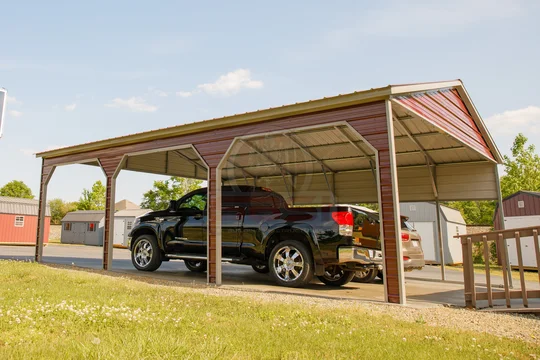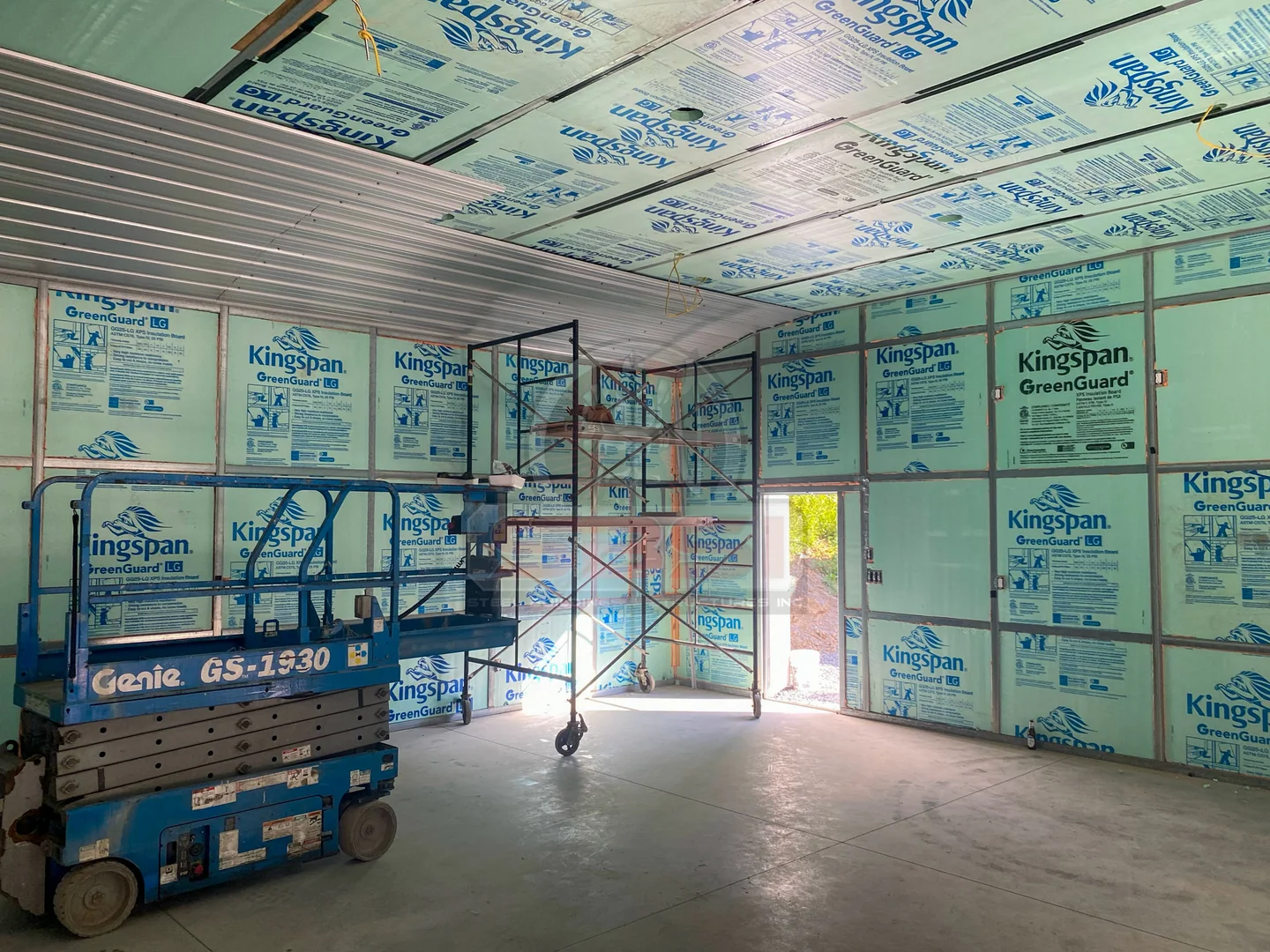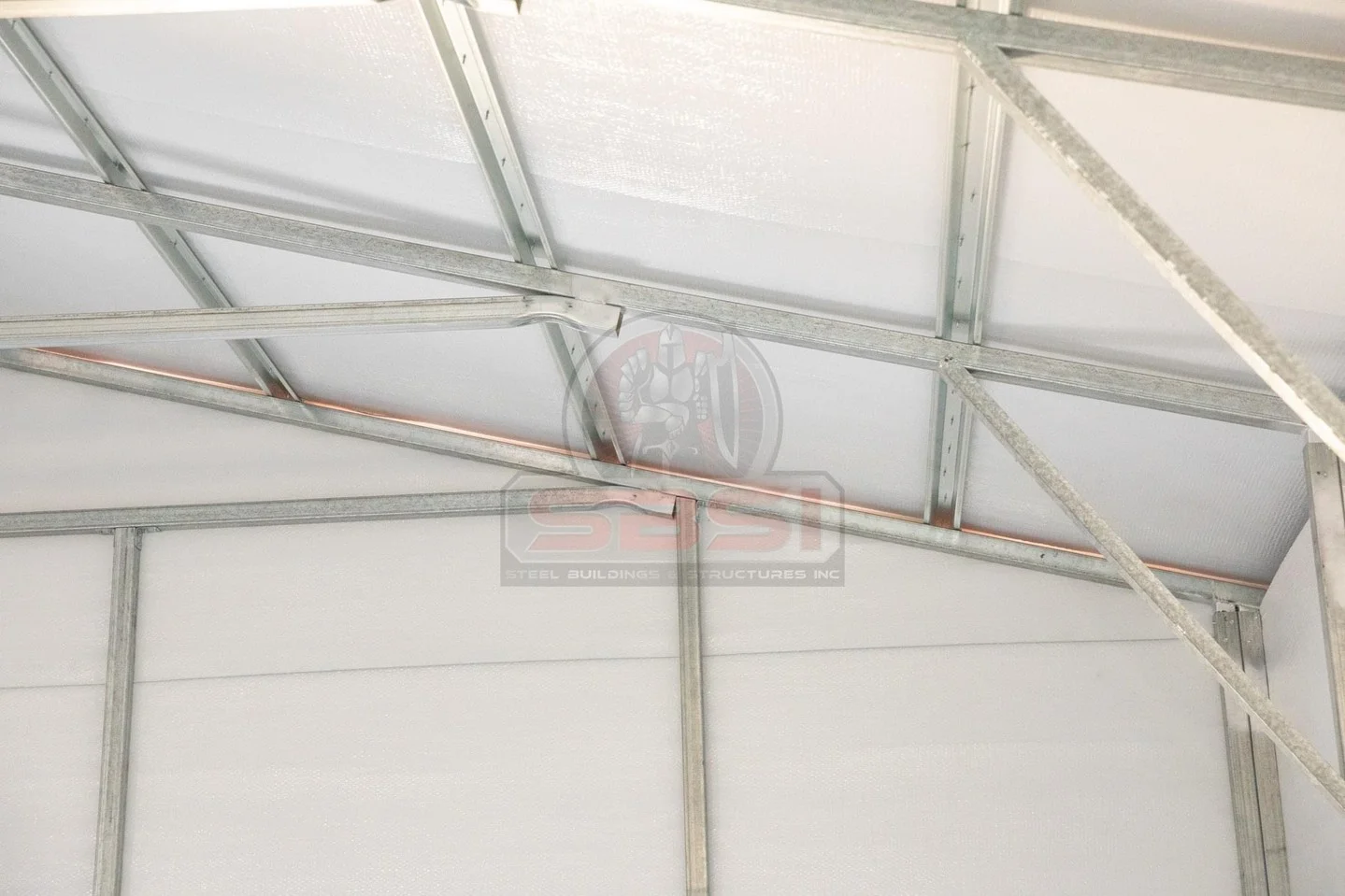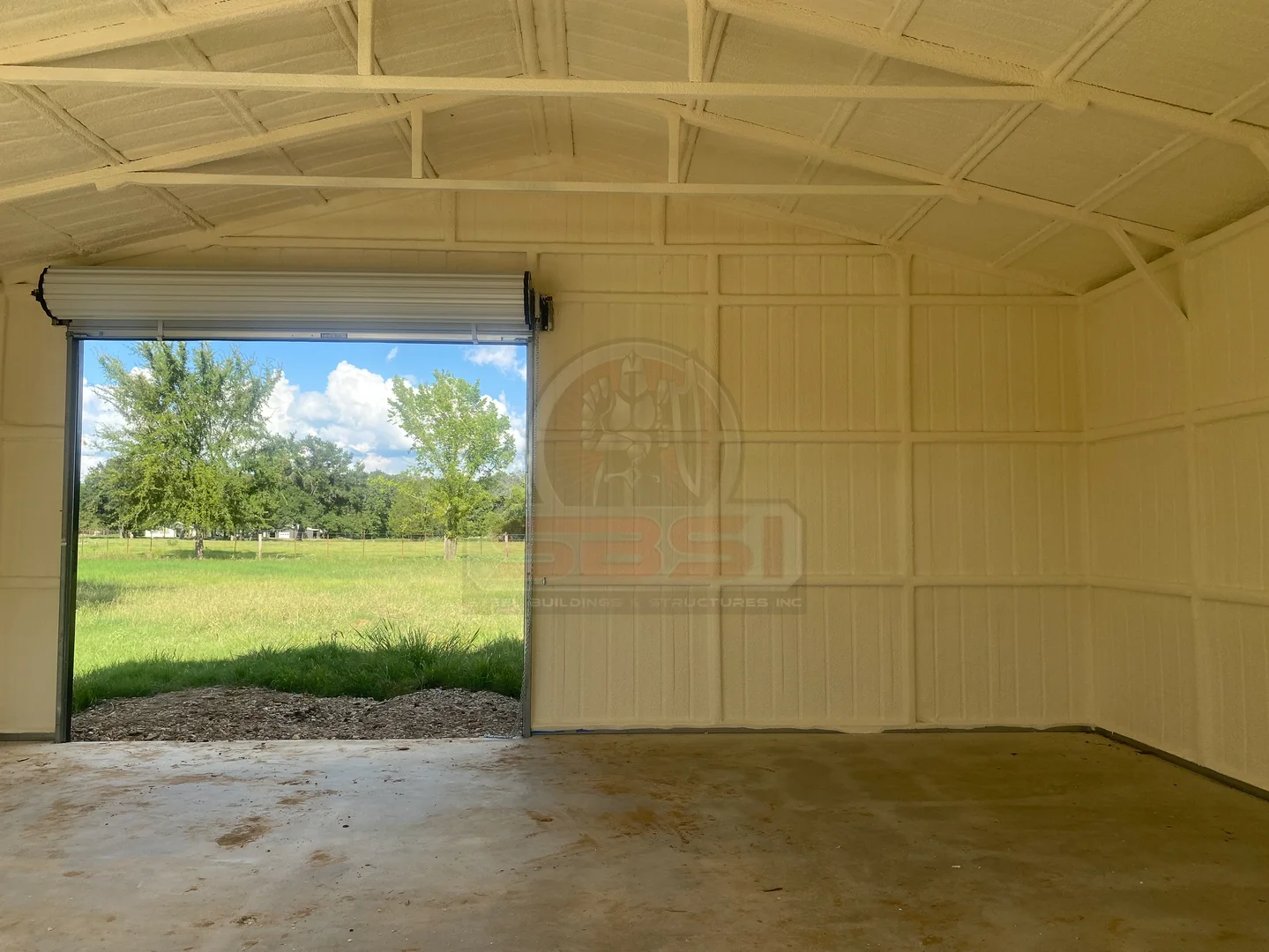Top 12 Questions on Insulated Metal Buildings
Custom metal buildings built by SBSI can be insulated using a variety of methods to enhance energy efficiency and comfort. SBSI offers options such as fiberglass insulation, which is cost-effective and easy to install, providing thermal and acoustic protection. Spray foam insulation is another high-performance choice, offering seamless coverage and exceptional resistance to moisture and condensation. For specific needs, reflective insulation can help reduce heat gain by reflecting radiant heat away from the building.
SBSI ensures that the chosen insulation type aligns with the unique requirements of each custom metal building, resulting in a structure that is both comfortable and efficient. Read the top 12 common questions below
1. What types of insulation are available for metal buildings?
Metal buildings can be insulated with fiberglass, spray foam, double-bubble, reflective insulation, or rigid board insulation, each with its own benefits and drawbacks. The best choice depends on your specific needs and the climate in which the building is located. An SBSI Building Specialists can offer solutions and advice on the best solution for your project, location, and budget.
2. How do I choose the right insulation for my metal building?
Consider factors such as your local climate, building usage, budget, and desired energy efficiency to choose the right insulation type. For example if you live in a typically cold climate, a material like Spray Foam or Rigid Foam might be best due to it's higher r-value. Evaluate insulation options free of charge.
3. How does insulation improve the energy efficiency of a metal building?
Insulation helps regulate internal temperatures by reducing heat transfer, keeping the building warm in winter and cool in summer. This results in lower energy costs and a more comfortable interior environment.
4. What is the best R-value for metal building insulation?
The best R-value depends on your specific climate and building needs, but generally, a higher R-value means better insulation performance. In very cold or very hot climates, higher R-values are often recommended. You may also want that higher R-value if your building is consistently lived in or climate controlled (like homes or workshops). Solutions like Spray Foam, Rigid Foam Board and Fiberglass insulation tend to have higher R-values and will save you money even though they cost more upfront if you have heat or AC.
5. How can insulation help control condensation in metal buildings?
Insulation creates a barrier that helps maintain consistent temperatures inside the building, preventing temperature differentials that lead to condensation. Properly sealed and installed insulation also reduces the risk of moisture infiltration.
6. Can I install insulation myself, or should I hire a professional?
While DIY installation is possible with some types of insulation, such as fiberglass batts, it's often best to hire a professional. Professionals ensure proper installation and help avoid costly mistakes, which ensures your investment has the most value possible, and lasts as long as possible. Check out SBSI building warranties.
7. What are the maintenance requirements for metal building insulation?
Insulation generally requires minimal to no maintenance. Regular inspections are recommended to check for damage, moisture, or gaps. Addressing issues promptly will help maintain the insulation's effectiveness and longevity.
8. How much does it cost to insulate a metal building?
The cost of insulating a metal building varies depending on the type of insulation, the size of the building, and labor costs. On average, spray foam insulation is the most expensive, while fiberglass batts are more budget-friendly.
9. Does insulation provide soundproofing benefits for metal buildings?
Yes, insulation can help reduce noise transmission through the walls and roof of a metal building, creating a quieter environment inside. Denser insulation materials, such as spray foam, offer better soundproofing. If soundproofing is high on your wishlist, consult with a Building Specialist free of charge today.
10. How does insulation impact the lifespan of a metal building?
Proper insulation helps protect the building from moisture damage and corrosion, which can extend its lifespan. By regulating temperature and humidity, insulation also reduces the wear and tear on structural components. Overall, the lifespan of a metal building can exceed 100 years and insulation can help extend that lifespan and health of the structure even longer.
11. Are there any building codes or regulations I need to consider when insulating a metal building?
Yes, building codes and regulations vary by location and may specify minimum R-values and installation methods. It's essential to check your local building codes and work with a professional to ensure compliance. Most states require at least R-19 in walls, R-38 in cathedral attics, and R-30 in flat attics
12. What are the latest insulation trends or innovations for metal buildings?
Recent trends include the use of advanced spray foam technologies and environmentally friendly insulation materials. Innovations such as reflective insulation and radiant barriers also improve efficiency and comfort in metal buildings.

Protect Your Vehicles From the Summer Heat with a Metal Carport Building

6 Benefits of Using a Metal Boat Carport




